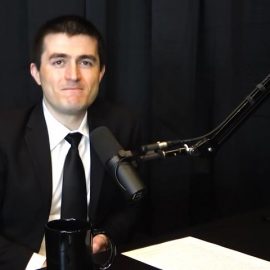


| Personal Brand Presence | 8 / 10 |
| Authoritativeness | 6 / 10 |
| Expertise | 8 / 10 |
| Influence | 7 / 10 |
| Overall Rating | 7 / 10 |
Born in Chkalovsk, in the former Tajik Soviet Socialist Republic, Fridman spent his early years in Moscow. His ancestry is Jewish. His father is Drexel University professor Alexander Fridman, a plasma scientist. Gregory Fridman, his brother, is a plasma physicist as well.
He went on to graduate from Drexel University with a BS and MS in computer science in 2010 and a PhD in electrical and computer engineering in 2014. Under the guidance of engineering professors Steven Weber and Moshe Kam, he finished his doctoral dissertation, Learning of Identity from Behavioral Biometrics for Active Authentication, with the goal of “investigating the problem of active authentication on desktop computers and mobile devices.”
Returning to the Lex Fridman Podcast, CEO of Meta Mark Zuckerberg conducted their talk as photorealistic avatars within the metaverse. Because he prefers to have private chats, Fridman doesn’t usually do remote podcasts, but this adjustment appeared to go well when Zuckerberg demonstrated the new VR avatars.
“It’s super interesting that this intimacy of conversation can be achieved remotely…it just feels like an incredible transition to something else, a different kind of communication. It breaks down all the barriers, like geographic physical barriers”
Both Fridman and Zuckerberg used sophisticated “codec avatars” with the Meta Quest Pro headset to access the metaverse prior to the talk. Zuckerberg expressed his opinion that the scanning process should be far more user-friendly, even if he admitted that the technology is labor-intensive. Zuckerberg explained that in order to create the avatars, their faces had to be scanned, which inevitably contributed to the two’s incredibly lifelike looks.
In addition, Zuckerberg and Fridman covered large language models (LLMs), the nature of reality, Meta’s Quest 3, and the future of mankind throughout the course of the hour-long presentation. Fridman time-stamped every subject covered in the show for those who choose to watch.
Solana has demonstrated strong performance, driven by increasing adoption, institutional interest, and key partnerships, while facing potential ...
Know MoreIn April 2025, the crypto space focused on strengthening core infrastructure, with Ethereum preparing for the Pectra ...
Know More